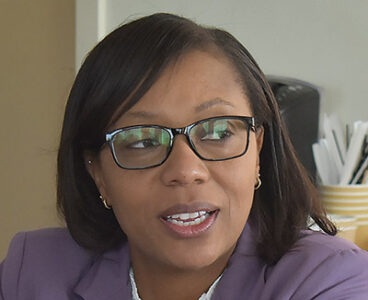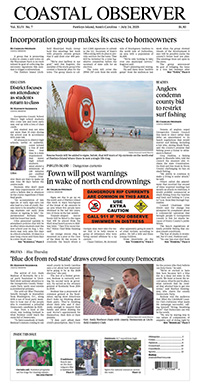Education
District focuses on attendance as students return to class

Georgetown County School District high school students who come late and leave early may end up with a loss of class credit.
Any student may not miss any more than 10 days during the school year in accordance with state law.
All absences in district high schools, lawful or unlawful, count toward a loss of seat time. Seat time is a state requirement that states high school students must attend a minimum of 120 minutes per credited course. However there are ways to make up seat time 30 days before the course ends.
Students who don’t meet seat time requirements will receive a failure due to absences in the course regardless of their final grade.
“An accumulation of late sign-ins or early sign-outs can also lead to a loss of credit. Parents have to be mindful of signing students out early from classes or signing in late,” Superintendent Bethany Giles told the board last week.
Giles presented updates to attendance policies that will be in effect when students start the new school year on Aug. 1. Students may only miss five days in a block schedule, 10 days in a year-long course and three days in a nine-week class.
“Attendance is a key factor in student achievement,” she said.
Giles also introduced two new prevention and intervention initiatives for bullying and vaping in addition to existing policies about the two topics in the Code of Conduct.
The school district defines bullying as a “deliberate, repeated act with intention to hurt, insult or threaten another person” on school grounds. She mentioned cyberbullying plays a role off of school grounds. Bullying can be reported anonymously by staff, students and parents/guardians via a complaint form or through the StopIt app. Once a complaint form is submitted, describing the incident, and safety protocols for students involved are taken, an investigation begins.
The district will incorporate social emotional learning in elementary school counseling sessions through two programs, Quaver Ready and Satchel Pulse.
“The heartbeat of these lessons is that when we are teaching proper decision-making, what are the wise decisions to make in being kind?” Giles said.
The Code of Conduct currently prohibits the possession of tobacco products on school grounds, which includes electronic cigarettes. Incidents where students were caught “vaping,” using e-cigarettes, were reported the highest in restrooms, between class changes and unsupervised locations.
Giles proposed the consequences of possession to be three days of out-of-school suspension on the first violation. The second violation results in five days out-of-school suspension and the third can lead to a recommendation for expulsion.
The drug usage was updated to include, but not be limited to, vapes containing illegal substances such as marijuana. On the first violation, a student will receive five days out-of-school suspension, recommendation for expulsion, and a mandatory, informational program to complete.
After the district placed a ban on cellphones in schools last year the consequences were made clear.
“We saw a better response from our students and that they understood what the consequences would be,” Giles said.
Preventative steps the district is taking to address the vaping issue include educational programs, staff training and safety design. Students in extra-curricular activities such as athletics, marching band and ROTC must participate in a program by Keith Brown, the instructional technology coach for middle schools in the district, about the dangers of vaping. The district will also provide classroom lessons from Catch My Breath and Ever-Fi. There are also halo sensors in most restrooms that detect vape particles.
“Each of those require a level of physical fitness even without having vaping substances in your system,” she said. “We may have a better success rate of students not having ailments as a result of using vapes.”
The initiatives introduced this 2025-26 academic year came as a result of the superintendent’s advisory council, formerly known as the superintendent’s cabinet meetings.
“We will continue to have support staff members, students and parents serving in that capacity to continue to provide input, as well as feedback, and share how we can improve our schools,” Giles said.




